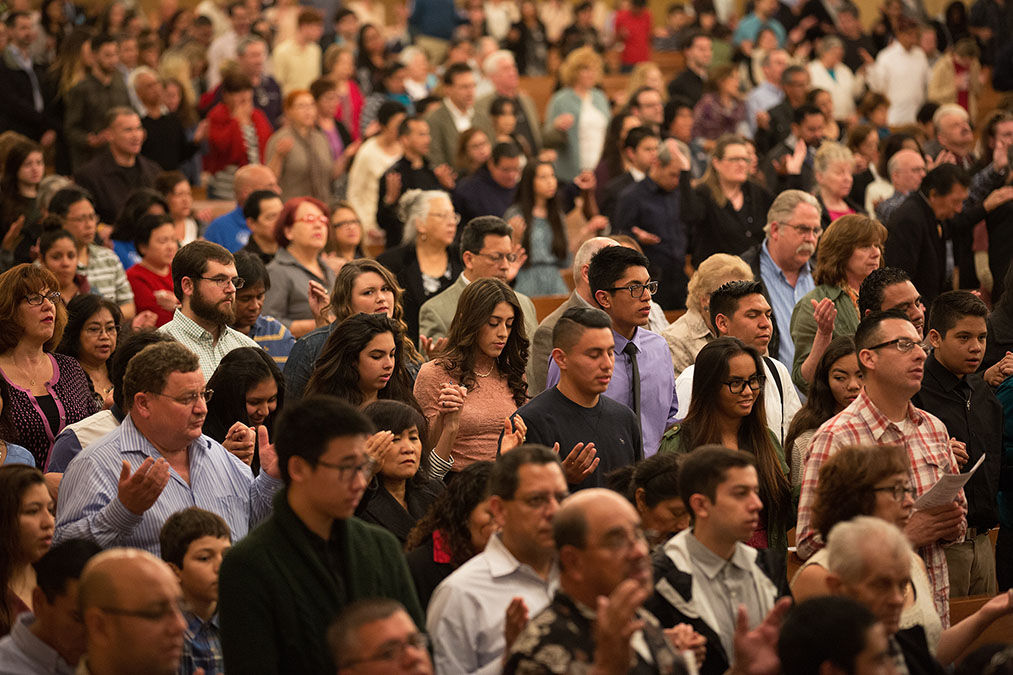euthaEditor’s note: The archbishop’s reflections this week are adapted from his homily at the Requiem Mass for the Unborn, held on Jan. 24 at the Cathedral of Our Lady of the Angels.
Each year at this time, we come to pray for the unborn and ask for the grace and courage to stand for life.
We entrust the souls of these innocent little ones into the hands of our loving God. May He give them peace and may their hope be full of immortality.
There are many injustices in our society, but the most fundamental is the one we rarely acknowledge — this routine taking of innocent human life that goes on every day. So as we pray for these little souls, we pray tonight for our city, our state, and our nation.
This issue is not only about culture and politics. It is deeply personal. It is a moral issue, but it is also spiritual.
Our lives are not our own. This world is not our permanent home. Our faith tells us that we are only pilgrims, strangers and exiles on this earth. There is a time and a purpose under heaven. A time to be born and a time to die. We are here for a little while only and then we pass on.
But not one of us — no one — has the right to decide who can live and who can die and when that time will come. We want to control everything, but we can’t. Only God has this right. Only God — who is the Lord of our beginning and the Lord of our ending.
This is why the right to life is the foundation of every other right and liberty and the true foundation of justice and peace in society.
Because if the child in the womb has no right to be born, if the sick and the old have no right to be taken care of — then there is no solid foundation to defend anyone’s human rights.
This week, as we are remembering that tragic day when the taking of unborn life was legalized in our nation, some of our leaders here in California introduced legislation to make it legal to kill the old, the sick and the disabled.
We need to pray and work so that this legislation, Senate Bill 128, does not succeed.
We cannot allow the cruel logic that says that human life is disposable; the cruel logic that says that some lives are not worth living and some lives are not worth protecting.
Euthanasia and abortion are not only questions of faith and religion. They are basic questions of human rights and social justice. They are questions of what kind of society we are and what kind of people we want to be.
A civilized society does not try to solve its problems by letting people kill themselves or by preventing people from being born. And we cannot allow ourselves to become a people who respond to human suffering by eliminating the one who suffers.
Pope Francis tells us that, “Anyone who is Christian has a duty to bear witness to the Gospel: to protect life courageously and lovingly in all its phases.”
So let us pray for new courage and new conviction to proclaim this beautiful Gospel of life in our society. To love life and to serve life. Every life — especially those lives that need more care, more attention, those lives that can be a burden to others.
Human life is a continuum. At both the beginning of life and at the end of life — human beings must rely on the kindness of others.
We need to make “taking care of one another” the foundation of our lives as Christians. And the foundation of our society.
We need to open our hearts to those who are suffering — to take care of the person in chronic pain, the one who is disabled, the woman struggling with her pregnancy, the terminally ill.
As long as there are Christians, no one should have to suffer alone!
The unborn children we mourn died before they could even be given their names. But God knows their names. He has known their names since before the foundation of the world.
So let us ask Our Lady, the Queen of the Angels — to pray for these little ones and to pray for us. May she help us to honor their memory by building a culture of life in our time. So that no one else will ever have to die from being unwanted.
To join the movement to defeat S.B. 128, visit Catholics Against Assisted Suicide (http://noassistedsuicideca.org/)

